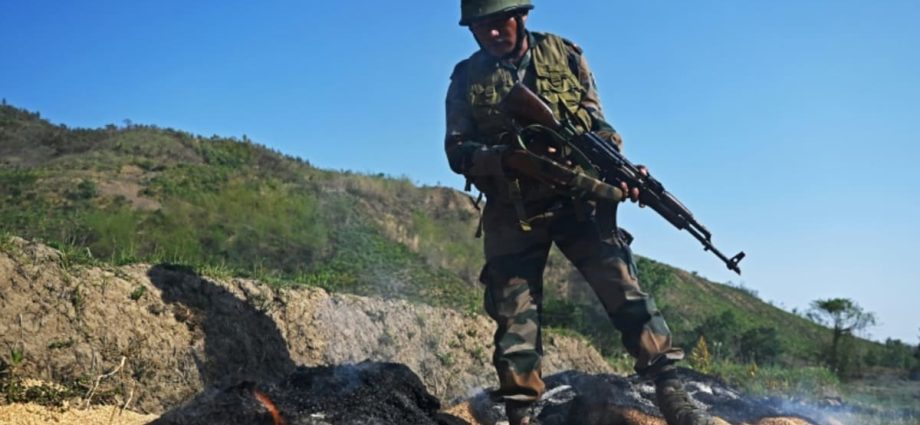
The rest of the village suffered a similar fate, its three settlements littered with broken doors, burnt-down water tanks, and forced-open metal trunks.
The towering village church, a school building, and even a jackfruit tree were set on fire by the attackers.
The raiders stole residents’ cattle and poultry, Sanatomba said.
“Those animals they couldn’t take alive, they killed and took away as meat.
“I am afraid of Meitei people.”
“BROKEN HEARTS”
The far-flung states of northeast India – sandwiched between Bangladesh, China and Myanmar – have long been a tinderbox of tensions between different ethnic groups.
The spark for the latest ethnic clash was a protest about plans to give the Meitei “Scheduled Tribe” status.
A form of affirmative action to combat structural inequality and discrimination, that classification would give them guaranteed quotas of government jobs and college admissions.
Violence erupted in the regional capital Imphal and elsewhere, with protestors setting fire to vehicles and buildings. According to villagers, Meitei mobs armed with guns and petrol cans then attacked Kuki settlements in the hills.
Authorities are concerned there could be more reprisal attacks “as both communities have now accumulated weapons”, an army officer said.
“Are you sure that none of you have any weapons that you would like to surrender?” a senior officer asked a Kuki gathering at a village outside Imphal on Monday (May 8).
“The other community has promised to surrender their weapons if you do too,” he added. “I want you to consider this as it doesn’t help either community to have these weapons in circulation.”
None of the mostly male audience did so.
Thanglallem Kuki, 32, a teacher at a private school, watched from a hilltop as his village of Kamuching was attacked and burned to the ground, spending two nights in the jungle before being rescued and taken to an army camp.
He said the Meitei mob went from house to house, retrieving valuables, electronic gadgets, cooking gas cylinders, and even mattresses, loading their loot into vehicles.
“After that they burned the houses and they were burning one house to another house.
“For the first time when they burned the houses, they left some houses unburnt and they stormed in after two days again and they completely burnt it.”
He had been left with nothing, he said.
“We were looking and crying with broken hearts and we looked down on our houses being burnt to ashes with helplessness and without hope.”

